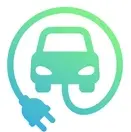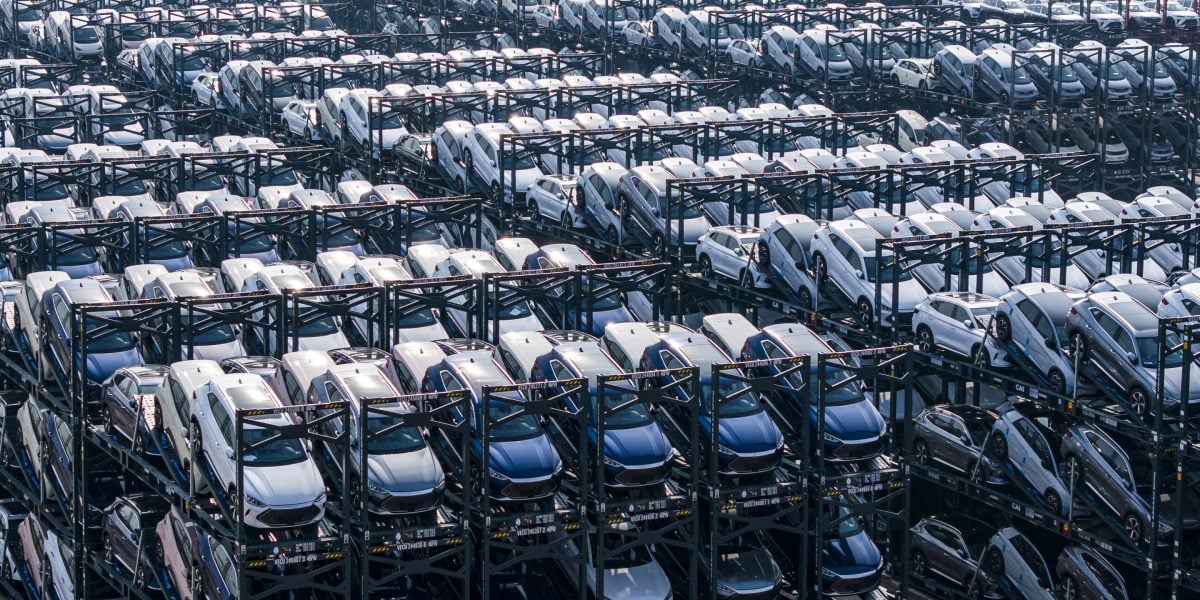China has become a powerhouse in electric vehicles. Its automaker BYD recently topped Tesla in global EV sales, with Elon Musk warning of Chinese carmakers, “If there are no trade barriers established, they will pretty much demolish most other car companies in the world. They’re extremely good.”
On Friday, the Alliance for American Manufacturing sounded the alarm, issuing a report entitled: “On a Collision Course: China’s Existential Threat to America’s Auto Industry and its Route Through Mexico.”
The report, which lists policy recommendations to combat overcapacity and unfair trade practices, notes that BYD is building factories in Thailand and Hungary designed to be regional export hubs. It then adds:
“More alarming, however, are Chinese firms’ heavy spending on plants in Mexico, through which they can access the United States by way of the more favorable tariffs under the United States-Mexico-Canada Agreement (USMCA). This strategy is, in effect, an effort to gain backdoor access to American consumers by circumventing existing policies that are keeping China’s autos out of the U.S. market.”



Naw. You already have the people who really want to be in EVs. You have to convince the rest.
PHEV is what Americans actually want.
Pure electric most days, no range issues for long trips, more power in sports cars.
deleted by creator
If you’re willing to go used, I got my 2019 bolt for 14k. It’s still more than the 5k you got for a gas car, but it pays the difference in lower fuel cost.
deleted by creator
Hard disagree.
I’d love to save on gas and maintenance but there’s no affordable EVs for a family of 5. I’m not spending 50k+ on a Hyundai crossover.
Yeah, the bolt is really the only cheap EV, and it’s not really suited for a family of five. (Though it does have five seats)
Yeah, and the the EV9 (3-row) is $60k (not remotely cheap, but the cheapest I’m aware of). It’s obviously worth checking the 5-year cost proposition (given fuel vs. electricity pricing), but if the math doesn’t work out for your driving needs, then you’re pretty well out of options for now.
Most Americans have no idea what PHEV even is
As a Volt owner for the last 8 years I am forced to agree.
I agree and it’s a shame. We’d be much further along if Ford was hyping the f150 PHEV vs the unobtainable and functionally worthless for towing f150 for instance.
I wonder if Range Anxiety is just another flavour of the way we tend to overbuy cars.
“I bought a F150 when a Mirage is better suited because 3 days a year I carry a sheet of plywood” turns into “I paid for a 500km battery pack even though my regular errands are 75km or less because once a year I go on a 400km road trip.” Avis exists, you know?
State intervention might have helped-- a standardized, modular battery pack and bootstrapping an exchange network might have given us 10-minute exchanges until charging tech advanced. I notice that people don’t seem moved by the newest “charges 75km in 10 minutes” stories, which might also be a failure of marketing-- thry still want the needle on F.
What are you supposed to do if you need to make like 7 or 8 longer trips a year?
I went through this a little bit myself. My car has absolutely no utility whatsoever, which makes it a bit awkward as I get into woodworking and other physical hobbies. But the reality is, it costs me less than $100 including gas to rent a uhaul for a day. It’s a bit inconvenient that I can’t go buy stuff on a whim, but with a little bit of planning it’s ridiculously cheaper for me to just rent a uhaul every once in a while rather than buy a new car.
Nobody wants to rent a car when they need to travel long distances. It’s a pain in the ass.
If you get say a Volvo it has about 275 mile range. DC charge time at a fast charger while on a trip takes 26 minutes. So every 200-220 miles you could take a 30 minute lunch / dinner or hotel /etc stop. Car comes in at ~35k. So a 6.5 hour drive would require you to stop half way. Which you would do to get gas either way. Aka driving from Orlando to Atlanta I would stop for lunch and charge, and then get dinner while I was there. Costs to recharge on the road still being slightly less than gas. Then the rest of the year when I need to charge you can plug up at home once a week or so and pay ~$11 dollars to fill up instead of ~$33 dollars.
I can decall my family doing ut regularly when growing up. The regular family car was a strangely immortal old Toyota with no A/C, and we didn’t trust it would make any trip much out of town, so if we wanted to go on a big outing every year or two we’d rent something for a day.
All I recall was how the new Dodge Neons would overheat in fairly short order.
Infrastructure is what I hear the most. Apartments don’t have a way to charge vehicles, and gas stations don’t have the chargers everywhere. So people don’t know where to find them unless they actually have an EV. That said, it costs a lot less to charge an EV at home. If you have to get your charge elsewhere costs go up. Still better than gas most places but locating them and possible wait time scares new users.
More apartments are getting on board. A friend of mine lives in an apartment building from the 1980s and the management just installed outlets for folks with plugin hybrids and is planning on adding NACS.
They’re redoing the parking where I work and will be adding EV chargers for employee and visitor use.
It may not be a concerted effort but the infrastructure is growing.
There are plenty of people who are building their own EVs or converting their ICE vehicles.